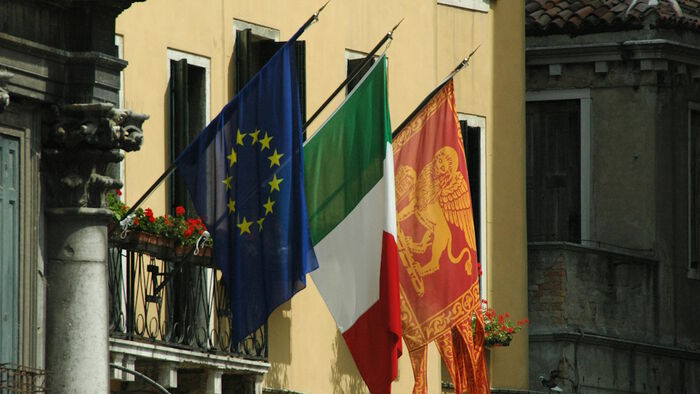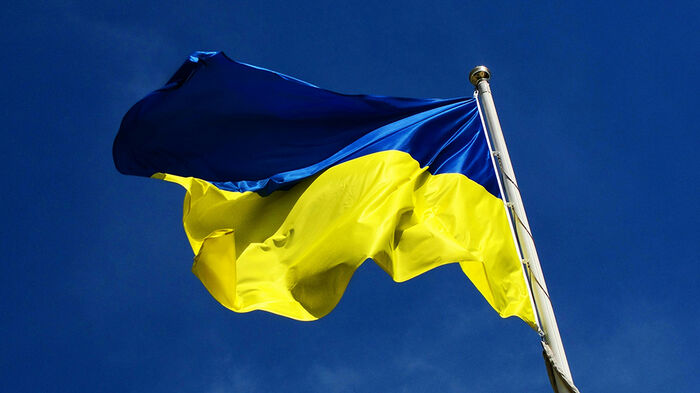Following the 2022 political elections, Matteo Salvini’s leadership was in doubt due to internal conflicts within the party and his decreasing popularity. Despite these issues, Salvini managed to retain his position as the Party secretary. Here I will examine the challenges that he faces in the upcoming European elections in June, as well as factors that may have helped him maintain his leadership position within the party, which can be observed in interviews I conducted with party members between 2021 and 2023.
Rapid growth, rapid decline
The League (Lega), formerly known as the Northern League (Lega Nord), was founded in the 1990s as a federation of ethno-regionalist parties in northern Italy. The party proposed regionalism as a radical way to oppose the corruption of establishments through separatism from the central state, which, in their view, favored the ‘parasitic’ South at the expense of the ‘productive’ North. Southerners were portrayed as simultaneously lazy, relying on welfare to survive, and stealing jobs from the honest and hard-working Northerners. Over time, the party has shifted its focus from southern migrants to migrants from other countries, increasingly adopting anti-migration, securitarian, and Islamophobic positions, and aligning with European radical-right parties. Although they hold radical views, their credibility as local administrators in the North has allowed them to appeal to a moderate electorate outside of their traditional support zones. In 2012, a financial scandal caused the fall of leader Umberto Bossi, who was weakened by illness, leading to Matteo Salvini becoming the new Party Secretary in 2013. Salvini launched a nationalization project, and tried to expand in the South, pursuing anti-migration and anti-EU positions. Eventually, in 2017, the party changed its name from "Lega Nord" to "Lega Salvini Premier" and officially opened to new members in the South.
By opening up to the South, the party's share of the vote increased from 6% in the 2014 European elections to 34% in 2019. This was significant growth for the party, as it had never gained more than 1.5% in regions other than the North. The party reached 27.5% in non-traditional zones, and became the most important in the center-right for the first time. Initially, the inclusion of southern electorates benefited the party. However, in the long run, it became a double-edged sword as it intensified ideological and political conflicts within the organization. The growth of the party was too rapid to be manageable. I interviewed a party member in 2022, after Lega had lost support in the national elections, who put it like this:
We never had time to discuss these things here because there was always an electoral campaign to do, and there is always a challenge to win. [...] always in battle, always running, and it made you maximize the victories you could ever have. Then, at a certain point, you get cramps because you didn't warm up enough.
The 2022 elections revealed that the League's electoral growth was ephemeral. A decline in Salvini's popularity and the party's participation in Draghi's government during the COVID-19 pandemic favored their long-time rival, Brothers of Italy (Fratelli d'Italia), who emerged as the winner. In fact, over 40% of the League's voters in 2018 shifted their allegiance to Brothers of Italy in 2022, while one in six did not vote at all. The 2024 regional elections in Abruzzo and Sardegna confirmed Brothers of Italy as the leading party of the Italian center-right.
Hard work, Discipline, and the Centralization of Power
Although his leadership is questioned, Matteo Salvini is still in charge as Secretary. To understand why this happened, we need to look inside the party. The first thing to consider is Salvini's internal legitimacy. the first factor is his longstanding membership. He began his career in the youth movement and gained his position through a long period of rank-and-file militancy. A former member I interviewed in the North explains why he initially supported Salvini:
You know, he was a man who came from the bottom anyway, he did militancy just like me, just like many others, he didn't come from the outside, he was trusted. And all in all, it was a trust that was also repaid rather well.
Salvini is considered a primus inter pares, one who gained his position as Party Secretary properly through militancy. Moreover, his electoral results earned him the trust of members, who still recognize his ability despite setbacks.
A second aspect to consider is the party’s disciplinary practices. Public discussion of internal issues is viewed as a betrayal of the party, since “criticizing the leader is criticizing the party itself”. Respecting party hierarchies, as usual in radical-right parties, is a matter of honor more than recognizing the practical effectiveness of a leader. By contrast, lower-ranking personnel and elected officials often faced expulsion when criticizing the leader. Again, this underscores the strict hierarchies operating in the party.
Finally, while the Northern League had a strong party structure in the past, which counter-balanced Bossi's leadership, Salvini's League assigned authority to nominated commissioners to maintain control during the party’s makeover, and minimize conflict in the North and guide the establishment of new sections in the South. Party conferences were delayed for years. As a result, there has not been an opportunity to elect another leader, and Salvini holds the majority in party organs as he nominated trusted figures for crucial roles.
Friends and Enemies
A second element to consider in order to understand what is at stake in the next European elections is the relationship between Salvini’s League and the long-time friend-enemy Brothers of Italy. The center-right coalition in Italy, consisting of these two parties and Forward Italy (Forza Italia), has been stable since 1994. Despite their similarities as radical-right parties, ideological differences between the Northern League and National Alliance (Alleanza Nazionale)—the post-fascist party from which Giorgia Meloni’s Brothers of Italy descended—had always been too deep. National Alliance’s nationalism, patriotism, and economic centralism clashed with the Northern League's regionalism and free market policies. Previously, the rivalry was contained because they hardly ever competed with each other, as the League was in the North and National Alliance mainly in the South. However, the nationalization of the league resulted in open conflicts at the sub-national level.
This rivalry also characterizes the current government. Meloni promised Salvini that they would finally obtain regional autonomy in this government. In exchange, the League would support Brothers of Italy’s request for institutional change towards Presidentialism, a reform that could strengthen the premier's role. Regionalist leaders support Salvini due to these promises of regional autonomy. However, the two parties have yet to reach an agreement. Despite a stable government, there is conflict within the coalition, as shown by tensions between Meloni and Salvini before the European Elections.
A derby in the Italian radical right
Two meetings happened near Rome in March 2024. On March 21, the European parliamentary group of European Conservatives and Reformists convened in Subiaco (Rome) to sign a charter expression of common intent to “protect the classical values and the Judeo-Christian roots” of Europe. Brothers of Italy hosted the event, and all parliamentary group members attended, including the newly joined French radical-right party Reconquête, of Éric Zemmour and Marion Maréchal Le Pen. Despite Giorgia Meloni's attempts to court Marine Le Pen and Viktor Orbàn, this group is opposed to their entrance: Marine Le Pen is “too statist” for Zemmour—ironically the roles are inverted in Italy—and Orbàn is considered to be too Russophile by the Polish conservatives of the PIS.
The Identity and Democracy group met two days later in Rome for a second meeting, following the one in December in Florence. The meeting included among others, Marine Le Pen’s Rassemblement National, the Austrian FPÖ, the Danish People’s Party, the Dutch PVV, and the leader of the Portuguese radical-right party Chega, who recently quadrupled his consensus. Marine Le Pen criticized Giorgia Meloni in a video message, saying that in Italy only the League would oppose Von der Leyen and asking Meloni to clarify her position on this matter. Viktor Orbàn, who previously showed his support for the Florence Meeting in a tweet, on this occasion declared his preference for Meloni.
The European elections have become a test for the two parties, competing to establish themselves as preferred allied for the European radical right while part of the same governing coalition in Italy. At the same time, the event is an occasion for moderate and regionalist members of the League to signal their opposition to Salvini’s nationalist line. Luca Zaia, a well-known Lega regionalist, declared that he could not attend the event as he was "busy with some inauguration".
Party-level, national, and international conflicts intertwine, and they pose complex challenges for Salvini. Electoral results will probably favor Giorgia Meloni, but the League results, depending on how poorly it goes, will have consequences for Salvini’s relationship with his European allies, and his permanence as party leader.
.jpg)




